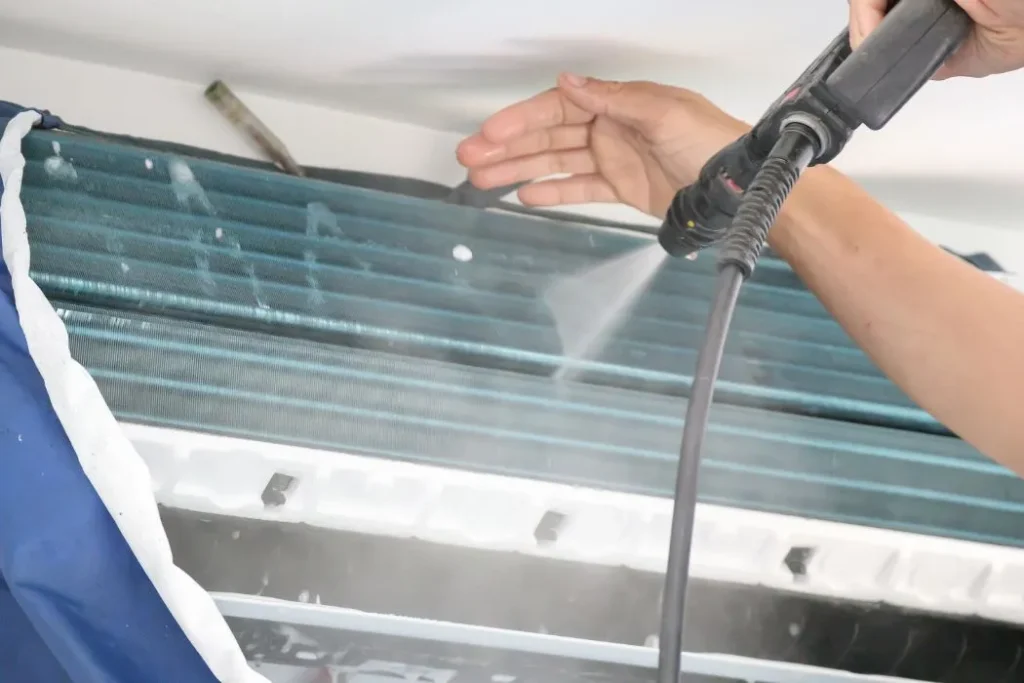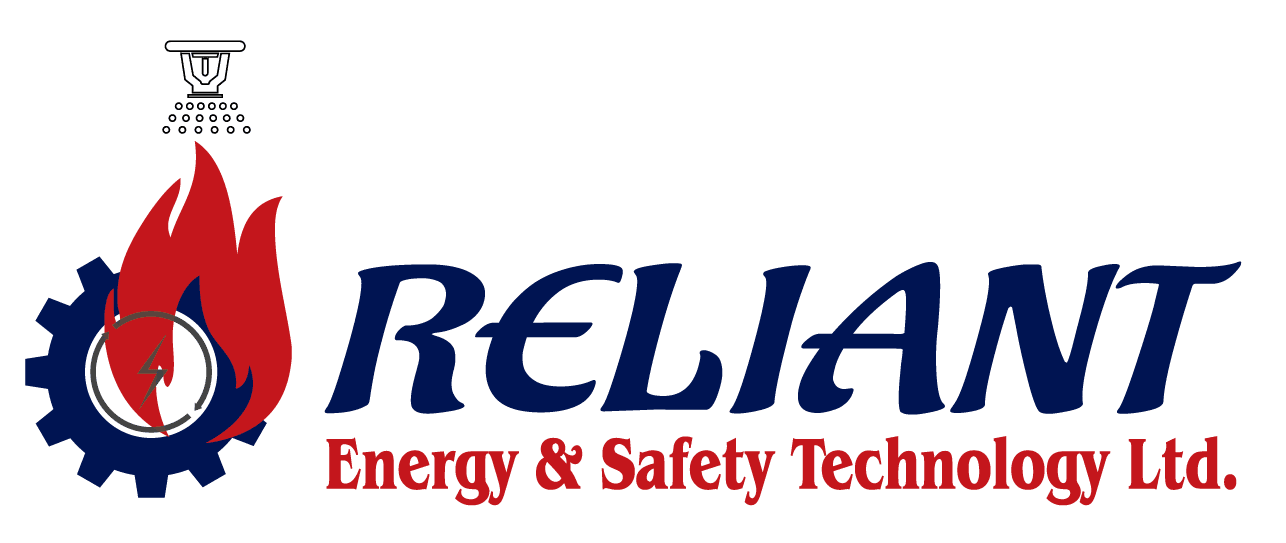What Are AC Coils?
AC coils are the core components of your air conditioning system. They facilitate heat exchange, allowing the system to cool indoor air. There are two main types:
- Evaporator Coils: Located in the indoor unit, these absorb heat and cool the air.
- Condenser Coils: Found in the outdoor unit, these release absorbed heat into the environment.
How Dirty AC Coils Affect Performance
Dirty coils can drastically reduce the efficiency and lifespan of your AC system. Here’s how:
- Restricted Airflow: Dirt acts as an insulating layer, obstructing airflow and heat transfer.
- Energy Waste: A dirty AC works harder, consuming more electricity.
- Frequent Repairs: Overheating from dirty coils can damage the compressor or other components.
Benefits of Regular AC Coil Maintenance
- Enhanced energy efficiency
- Reduced electricity bills
- Longer system lifespan
- Improved air quality
- Minimized repair costs
Visit our detailed article to learn more about the importance of electrical substantial services in Bangladesh.
Signs That Indicate Dirty AC Coils
- Warm Air Blowing: Indicates reduced cooling capacity.
- Uneven Cooling: Some rooms remain warm while others are cool.
- Higher Energy Bills: Sudden spikes in utility costs without increased usage.
- Strange Noises: Rattling or hissing sounds may signal restricted airflow.
Tools Required for Cleaning AC Coils
Before starting, gather the following essentials:
- Gloves: Protect your hands from dirt, sharp edges, and cleaning solutions.
- Flashlight: Helps illuminate hard-to-see areas for thorough cleaning.
- Screwdriver or Drill: Needed to remove access panels and covers.
- Scrub Brush: Use a soft-bristle brush to clean the coils without damaging them.
- Hose with Sprayer Attachment: Ideal for rinsing outdoor condenser coils.
- Shop Vacuum with Wand Extension: Perfect for removing dirt and debris from the coils. Also surrounding areas.
- Fin Comb: A specialized tool for straightening bent coil fins to ensure proper airflow.
- Soap: Mild soap works well for basic cleaning tasks.
- Coil Cleaner: A must-have for removing dirt, grime, and debris from the coils.
Choosing the Right Coil Cleaner
Proper cleaning solution for your AC coils is essential for safe and effective cleaning. You have two primary options:
Commercial Foaming Coil Cleaner
- Specifically formulated for AC coils, these cleaners are widely available at hardware stores.
- Look for products labeled as “AC Foaming Cleaner”. And buy a few cans to ensure you have enough for the entire job.
- These cleaners are designed to dissolve stubborn dirt and debris while being safe for your unit.

Homemade Cleaning Solution
- A DIY mixture of white vinegar, mild detergent, and water can be used for cleaning.
- While this option is cost-effective, it may not be as effective or reliable as commercial cleaners.
- Exercise caution when using homemade solutions, as improper formulations could damage your AC system.
Safety Precautions Before Cleaning
- Turn off power at the breaker.
- Allow coils to cool down.
- Avoid spraying water near electrical components.
- Work in a well-ventilated area to avoid inhaling fumes from cleaning solutions.
Step-by-Step Guide to Cleaning AC Coils
How to Clean Outdoor Condenser Coils
- Turn Off the Power to the AC Unit: Before starting, switch off the AC unit at the breaker or use the shutoff switch near the outdoor condenser. This ensures safety for both you and the equipment.
- Remove the Covers: Using a screwdriver or drill, remove the screws holding the top and side panels of the condenser unit. Keep the screws in a safe container for reassembly later.
- Optional: Remove the Fan: If accessible, unscrew and carefully lift the fan from the unit to gain better access to the coils. If it’s complicated or secured tightly, skip this step.
- Clear Debris: Remove any leaves, sticks, or debris from inside and around the condenser unit. Use gloves to handle sharp objects.
- Vacuum the Interior: Use a shop vacuum with an extension wand to clean out dust and dirt from the unit, focusing on hard-to-reach areas.
- Straighten Bent Fins: If the aluminum fins are bent, take a fin comb to gently straighten them. This improves airflow and efficiency.
- Apply Coil Cleaner: Spray a foaming coil cleaner evenly over the coils. Follow the product’s instructions for the recommended wait time (usually 5–10 minutes).
- Rinse with Water: Gently rinse the coils with a hose. Spray from the inside out, starting at the top and working down. Use a low-pressure setting to prevent damaging the fins.
- Reassemble the Unit: Once the coils are dry, reattach the fan, top, and side covers. Secure everything with the screws you set aside earlier.
- Restore Power: Turn the power back on and ensure the system is running smoothly.
How to Clean Indoor Evaporator Coils
Evaporator coils, located in your indoor air handler, absorb heat from the air inside your home. Keeping them clean helps maintain efficient cooling.
Tools and Materials Needed
- Gloves
- Screwdriver
- Nylon scrub brush
- Spray bottle
- Foaming coil cleaner
- Soft towel
Step-by-Step Cleaning Instructions
- Power Off the Unit: Switch off the AC at the breaker panel to ensure safety. Never rely solely on the on/off button.
- Access the Evaporator Coils: Remove the access panel of the air handler by unscrewing the fasteners. You’ll find the coils shaped like an “A” inside the unit.
- Brush and Vacuum the Coils: Use a nylon brush to remove large debris from the coils. Then, use a vacuum with a soft attachment to clean up dirt and dust. Be gentle to avoid damaging the fins.
- Apply Foaming Cleaner: Spray a generous amount of foaming coil cleaner onto the coils and let it sit for 5–10 minutes as per the product instructions.
- Rinse with a Spray Bottle: Carefully rinse the coils using a spray bottle filled with water. Avoid using a hose or soaking the unit to prevent water damage.
- Dry and Reassemble: Use a soft towel to dry the coils, or leave the access panel open to air dry. Once dry, reattach the panel and restore power to the unit.
DIY vs. Professional Maintenance
While DIY cleaning is cost-effective, professional services ensure a thorough job, reducing the risk of damage. Professionals use advanced tools and techniques to boost efficiency.
How to Prevent AC Coil Dirt Buildup
- Replace air filters regularly.
- Keep outdoor units clear of debris.
- Schedule professional maintenance annually.
How often do AC coils need to be cleaned?
It’s generally recommended to clean your AC unit’s coils once a year. However, if your system is exposed to significant amounts of dirt, dust, or moisture, more frequent cleanings—such as every three months—may be necessary to maintain optimal performance.
Why Reliant-Est.com Stands Out
At Reliant-Est.com, we combine expertise, customer-centric services, and cutting-edge technology to deliver top-notch AC maintenance. Our commitment to excellence ensures:
- Affordable, transparent pricing
- Certified technicians
- Guaranteed satisfaction
- User-friendly booking system
For all your fire protection needs, explore our fire and safety equipment company for top-quality solutions to ensure safety and compliance.
Conclusion
Clean AC coils are essential for efficient cooling, lower energy costs, and a long-lasting system. Regular maintenance ensures your AC performs optimally, especially during peak seasons. Whether you choose DIY cleaning or professional services, prioritize coil care to enjoy uninterrupted comfort.
FAQs About AC Coil Cleaning
Q1. How often should I clean AC coils?
A: Clean them at least once a year, or more often in dusty environments.
Q2. Can dirty coils cause health problems?
A: Yes, dirty coils can reduce air quality, potentially causing allergies or respiratory issues.
Q3. Are there eco-friendly coil cleaners?
A: Yes, look for biodegradable, non-toxic cleaning solutions.
Q4. What happens if I don’t clean my AC coils?
A: Neglected coils can lead to higher bills, reduced cooling, and system failure.
Q5. How much does professional AC coil cleaning cost?
A: Costs vary, but most services range between $100–$300.
Q6. Can I use vinegar to clean AC coils?
A: While vinegar is a mild cleaner, it’s less effective than commercial coil cleaners.

